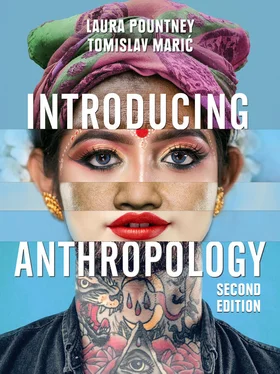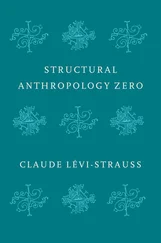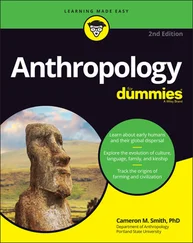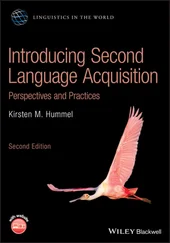How to Use This Book How to Use This Book Anthropologists need a range of skills, and this book is a starting point for these. Each chapter opens with a list of key issues and debates about the specific topic, followed by an introduction outlining the structure. Important relevant concepts, key terms, are highlighted in the text and listed with their definitions at the ends of chapters. A range of questions is included throughout the book, designed to stimulate anthropological ideas and ways of thinking. And at the end of each chapter, there are further questions as well as ideas for a personal investigation. The importance of ethnographic research in anthropology is reflected in the structure of the book, which includes many summaries of interesting ethnographic studies, some contributed by their authors. The chapters do not (and could not) convey the sum total of studies and information on their topic; they simply provide examples and introductions to give the reader a starting point in their journey into anthropology. Interviews with anthropologists are interspersed throughout the book and there is information about anthropological activism, which should provide a sense of the engagement of the discipline in the world, as well as offering ideas for career and academic progression.
6 Acknowledgements Acknowledgements First, we would like to thank those without whom the first edition of this book (and in many cases both editions) would not have been possible: Marzia Balzani, Heather Bonney, Andrew Canessa, Thomas Hylland Eriksen, Katarina Fritzsche and Brian Morris, all of whom contributed particularly generously. In addition, Nicholas Badcott, Ben Burt, Hilary Callan, Pat Caplin, Liana Chua, Robin Dunbar, Peggy Foerer, Anabella Hendry, Joy Hendry, Gary Marvin, Theresa McCarthy, Daniel Miller, Desirée Pangerc, Sarah Pink, Angela Rivière, James Staples; the British Museum, the Horniman Museum, the Museum of Archaeology and Anthropology, the Pitt Rivers Museum, Oxford, and the Krapina Neanderthal Museum in Croatia. Everyone who has contributed has continued to surpass our expectations. This is testament to the subject, which produces the kind of people who have become so much more than creators of new knowledge. Anthropologists have the shared qualities of an excellent sense of humour, life experience and an awareness of the richness of life. This was simply inspiring and motivating. The second edition is enrichened by the energy and support we received from Edward Liebow, Executive Director of the American Anthropological Association, David Shankland, Director of the Royal Anthropology Institute, special guidance by Liana Chua, and contributions from Crystal Abidin, Katherine E. Carter, Sophie Chao, Yu-Chun Chen, Simon Coleman, Miguel Diaz-Barriga, Margaret Dorsey, Alexander Edmonds, Peggy Foerer, Ruth Gomberg-Munoz, Ana P. Gutiérrez Garza, Nora Haenn, Naomi Haynes, Joy Hendry, Jim Igoe, Tim Ingold, Sabine Klocke-Daffa, Laura Korčulanin, Jonathan Lanman, Gideon Lasco, Jonah Lipton, Diego Maria Malara, Laura McAtackney, Tom McDonald, Aimee Middlemiss, Kiran Mirchandani, Mwenda Ntarangwi, Dimitrios Papadopoulos, Sarah Pink, Peter Rudiak-Gould, Jonathan Skinner, Richard Sosis, Jack Stuster, Nico Tassi and Dmitris Xygalatas. Thanks also go to the photographers whose pictures make this book so rich and interesting. We would like to thank the anonymous reviewers of our work, and, last but not least, the staff at Polity, particularly Jonathan Skerrett, Karina Jákupsdóttir and Sarah Dancy for their hard work and support in the realization of this second edition.
7 1 What Makes Us Human? Key issues and debates How Did Humans Evolve? Cultural Evolution How Do Humans Vary? The Concept of Race and a Critique of the Concept Conclusion
8 2 Research Methods Key issues and debates Ethnography Digital Anthropology Conclusion
9 3 The Body Key issues and debates Body Modifications and Decorations Body Types Anthropological Theories of the Body Symbolic Classification and the Body: The Body and Society Conclusion
10 4 Ways of Thinking and Communicating Key issues and debates Classification Explaining Events Language Nonverbal Communication Human Communication before Writing: Oral Traditions How Are Modern Technologies Affecting Communication? Conclusion
11 5 Social Relations Key issues and debates Social Class, Caste, Gender, Age Kinship Marriage Patterns Kinship Relationships with Nonhuman Species and Objects The Effect of Technological Advances on Definitions of Kinship Using Objects to Express Social Relations. The Spread of Capitalism Conclusion
12 6 Engaging with Nature Key issues and debates Cultural Practices in Relation to the Environment The Nature versus Culture Debate The Relationship between Humans and Animals Anthropology and Climate Crisis Conclusion
13 7 Personhood Key issues and debates Development of the Western Philosophical Concept of Personhood Examples of Concepts of Personhood How is Personhood Expressed and Understood by Anthropologists? Personhood and Boundaries. Conclusion
14 8 Identity Key issues and debates How Do Anthropologists Understand Identification? Social Memory: ‘Folk’ Memory-Making Language Music Shaping Group Identities Conclusion
15 9 Ritual Key issues and debates Types of Ritual Functions of Rituals Anthropological Approaches to Ritual Political Rituals Rites of Passage Conclusion
16 10 Gender Key issues and debates Gender and Biology Feminism Queer Theory Gender, Relationships and Power Alternative Gender Identities Conclusion
17 11 Boundaries Key issues and debates Boundaries and Bodies Boundaries between Ethnic Groups Boundaries between Humans and Cyborgs Conclusion
18 12 Globalization Key issues and debates The History of Globalization How Do Anthropologists Study Globalization? Anthropology of Tourism The Impact of Globalization Creolization Does Globalization Lead to Homogeneity? Globalization and Migration Consequences of the Global Economy Local and Global Impacts of Globalization Conclusion
19 13 The Role of Material Culture Key issues and debates What Is Material Culture? Archaeology, Anthropology and the Role of Material Culture Are Digital Objects Material? Aesthetics: The Culturally Constructed Nature of Beauty How Do Material Objects Symbolize Relationships? Theories of Material Culture Material Objects Used to Communicate and Negotiate Identity The Representation of Material Culture Conclusion
20 14 Applied Anthropology Key issues and debates What is Applied Anthropology? Advocacy in Anthropology Applied Anthropology and Public Health Ethics and Applied Anthropology The American Anthropological Association Examples of Applied Anthropology Anthropologists’ Testimonies and Case Studies Conclusion
21 Key Terms
22 References
23 Ethnographic Films
24 Websites
25 Index
26 End User License Agreement
1 Chapter 1 Figure 1.1Hand of an African ape and of a human. (Denise Morgan for the University of Utah...
2 Chapter 2 Figure 2.1Problems with ethnography
3 Chapter 4 Figure 4.1The development of human language
4 Chapter 6 Figure 6.1Understanding the impacts of climate change from an anthropological perspective
5 Chapter 13 Figure 13.1Why objects are of interest to anthropologists
1 Cover
2 Table of Contents
3 Dedication
4 Title Page
5 Copyright
6 Preface
7 Acknowledgements
8 Begin Reading
9 Key Terms
10 References
11 Ethnographic Films
12 Websites
13 Index
14 End User License Agreement
1 ii
2 iii
3 iv
4 vi
Читать дальше












